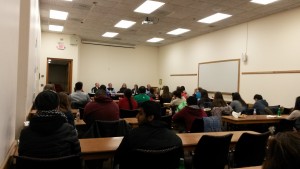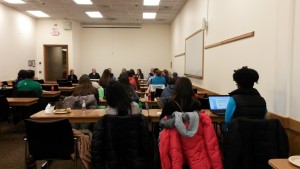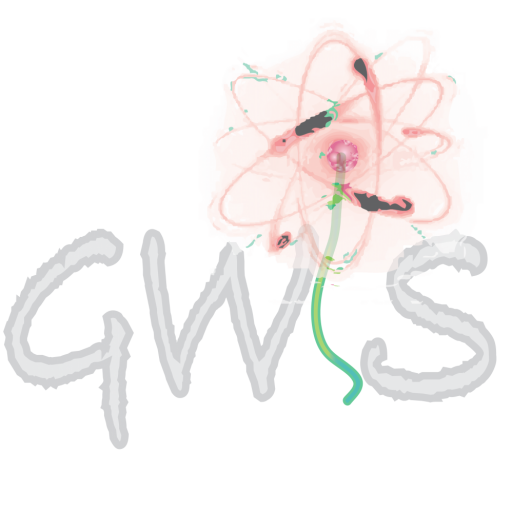The Scientists and Engineers Impacting Public Policy panel was an overwhelming success – over 30 students attended! While scientists and engineers are routinely praised for contributions to the research community, it is also important to recognize their valuable contributions to public policy and service. The ability to involve, engage, and serve the public can have a significant impact on research strategies, federal research priorities and funding, and educational programs to ensure future generations of STEM researchers. A panel of scientists and engineers discussed their service to government agencies and non-profits, shared strategies for engaging the public to advance and inform research agendas, and demonstrated how passion for science is changing the landscape of STEM education.
The panelists described their experiences interfacing with the public and shaping public policy throughout their careers in water management, conservation, biotechnology, nanotechnology, and information technology. Panelists emphasized the importance of communication and collaboration in their efforts with both fellow scientists and engineers as well as with public and private organizations. Peg Riley described the excitement of hearing language she helped develop in the State of Union address and the importance of working on something you are passionate about. Mark Tuominen talked about keeping perspective and representing the interests of your discipline and nation in developing research directions. Deborah Rocque discussed the importance of having excellent technical experts in government agencies interpreting and acting on legislation and policies. She also recommended reading “Don’t Be Such a Scientist” by Randy Olson about the emotional aspects of communicating and connecting with an audience on technical topics. David Reckhow talked about his experiences working with local water management organizations and Rick Adrion described working in different government positions to develop research agendas and increasing diversity in computer science and information technology fields.
We want to thank all of our incredible panelists for taking time out of their already-busy days to talk to us about this incredibly important issue. As someone who is increasingly interested in the both the art and the necessity of science communication, this panel discussion was extremely gratifying and important to me. I’m glad I got the chance to attend, and I hope you did too. If you didn’t, don’t worry – there’s plenty more where this came from! Stay tuned for more information about events related to science, communication, and public policy.
